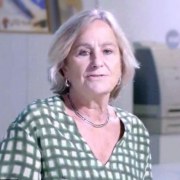Join our competitive workshop (an unusual format) where five speakers will first present the science competition they are each running, before inviting the audience to rate their initatives in terms of benefits for a) science & society b) their own museum or science centre.
Looking for a winner will allow to explore common ground and best practices and raise crucial questions regarding science centres and museums' involvement in competitions:
- What can we gain as organisations?
- Is this a dependable strategy for us?
- Are ICT / new technologies a must in science competition nowadays?
Facilitator
Curator Text and Language
Staatliche Museen zu Berlin – Preußischer Kulturbesitz
Berlin
Germany
Session speakers
Director
Barcelona
Spain
To celebrate the 150th anniversary of the arrival of one of its most emblematic specimens, the Museum organised the competition "Give a name to the Museum's Whale". Citizens were invited to propose a name, to vote for the best one and to participate in a party in which the winner was announced and a stop motion film created. The project lasted for a few months with many activities around the whale and, with the participation of several thousand people, became a highly popular and well known project.
Director of exhibitions department / Museographer
Frameries
Belgium
Robotix is the Belgian version of Eurobot (age 18+) and Eurobot Junior (age 8 - 18) which are european robotics competitions. Since September 2001, as organizer of these competitions, the Pass works hands in hands the whole year with teams of contestants in order to help them build and program their robots. For young people, it is often associated with a school project. During the session, we will focus on the perks and challenges we faced through the years while organizing this event.
Projects Coordinator
Barcelona
Spain
Have you ever thought about what topics need more research? Would you like to improve certain things that still lack satisfactory solutions? Those are the questions that secondary school students have to answer when participating in the contest GOT AN IDEA! Think of the future you want. The aim of the contest, associated with Barcelona City Council’s Escolab Programme, is to encourage young people to adopt a creative attitude and to think about the real possibility of doing research and innovating and to promote dialogue and the exchange of ideas between society and the world of research and innovation.
Executive & Education Officer
Brussels
Belgium
The International Biology olympiad is a high-level competition aiming at 17 years old students. The goal is to detect and stimulate first-class biological talents. Over 60 countries worldwide are taking part. There are many positive outcomes but the basic question here is: at a national level, is it interesting to establish a relationship between Biology olympiad and Science centres/Museums? The Belgian example is reviewed.





